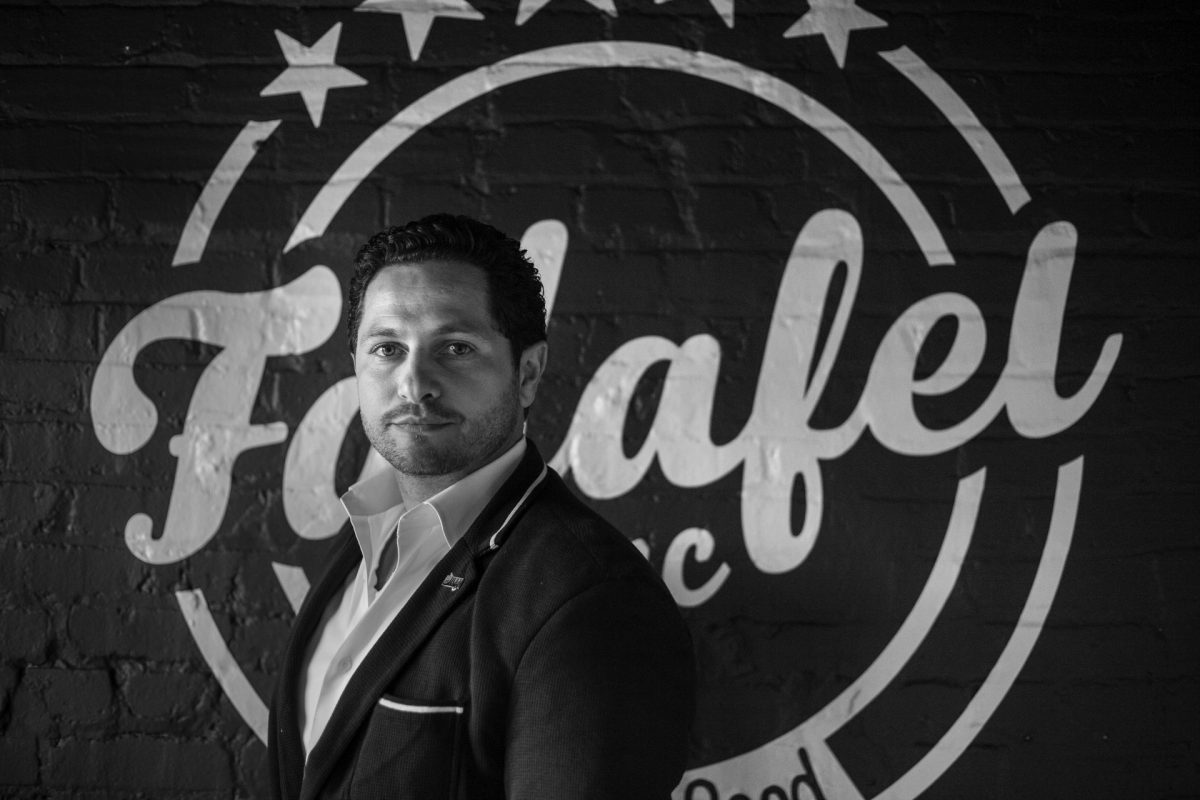“Eat for good,” reads Falafel Inc.’s slogan, emblazoned on the restaurant’s façade and packaging. Founded by Palestinian American entrepreneur Ahmad Ashkar, the franchise donates a fraction of its weekly profits to the U.N.’s World Food Programme. According to the company’s website, Falafel Inc. has contributed enough funds to pay for 200,000 meals for refugees from regions including Sudan, Syria, Ukraine, Yemen and Gaza—an impressive feat for a restaurant whose menu prices never break $6.
In an interview with Al-Jazeera in 2017, Ashkar said that he “think[s] falafel and food in general is the ultimate equalizer, and want to use falafel to show the world that refugees are real; this is a food that they’re forced to eat because they’re poor and they don’t have opportunities.”
He described his efforts to help refugees, explaining, “With every meal that’s purchased in our restaurant, one day’s worth of food is given to a refugee.”
Besides supporting refugees, Falafel Inc. aims to preserve and pay homage to Ashkar’s Palestinian heritage. “It’s our food — the falafel, the hummus. It’s our heritage as Palestinians, and it’s very important to me that the world understands that,” Ashkar said. “One of the missions of Falafel Inc. is to revitalize falafel as a Palestinian food . . . I would take our falafel, hummus, tabbouleh . . . over, frankly, anyone’s in America, and [it’s] as good as anything you could get in Palestine.” From the ingredients they source to the cooking tools they use, Falafel Inc. prizes authenticity. Their primary falafel fryer, for example, was imported from a Palestinian refugee camp in Gaza.
“People ask me all the time . . . ‘How do you make Falafel Inc. taste so authentic and like the falafel at home?’” Ashkar said. “[I]t’s basic — we have back-home equipment.”
Falafel Inc. serves falafel pita sandwiches and falafel bowls, all of which are halal and affordable. For sides, the restaurant offers fries dusted with za’atar with various dipping sauces, including its flagship sauce, the “Habibi”, which means “my love” in Arabic), a tangy, slightly spicy sauce that the menu claims “no description can do . . . justice.”
The authentic falafel is slightly crisp on the outside, something that you could find at the average Middle Eastern falafel shop. It’s certainly not the flavorful green falafel served by Taïm, a Mediterranean franchise with an outpost in Dupont Circle nearby, which pops with coriander, or Oh Mama Grill’s falafel, which, although thicker and less crisp, has a nice spice.
The falafel bowl, one of the best items on the menu, comes with spinach, tabbouleh and crispy pita chips dusted with za’atar. This Levantine spice is a wonderful addition to the menu, from a side ingredient to the centerpiece of the pita chips and fries.
Ultimately, Falafel Inc. has a laudable mission; according to the World Food Programme, 333 million people experienced severe hunger worldwide in 2023. With climate change and conflicts like those in Gaza, Darfur and Ukraine, hunger crises around the world threaten to rise. To Ashkar, eating at Falafel Inc. is a “bite-sized way for [you] to get involved” in combating that.
















































